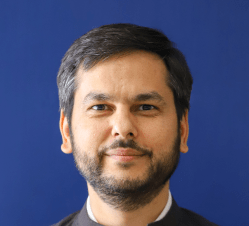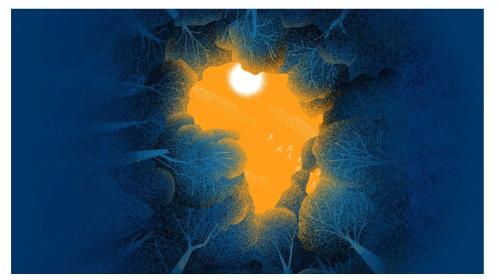Sri Lanka’s new president, Ranil Wickremesinghe, took office last week as the country faces economic collapse, political instability, and ongoing food and fuel shortages. Constantino Xavier looks at how Sri Lanka’s governing choices over many years led to crisis, the difficult reforms ahead, and the implications of Sri Lanka’s collapse for other developing nations throughout Asia and Africa.
Listen to Brookings podcasts here, on Apple or Google podcasts or on Spotify, send email feedback to [email protected].
Thanks to audio engineer Gaston Reboredo.
TRANSCRIPT
PITA: For months, Sri Lanka has been roiled by protests over drastic food and fuel shortages, culminating last week in President Rajapaksa’s resignation and flight to Singapore. With us to discuss what’s been happening in Sri Lanka and its path forward is Constantino Xavier, a fellow with Foreign Policy and Security at the Centre for Social and Economic Progress in New Delhi, and nonresident fellow with the India Project here at Brookings. Tino, thanks so much for talking to us today.
XAVIER: Thank you, great to be here.
PITA: The protests in the recent weeks have come with really notable visuals: the number of people in the streets, the protesters storming the presidential offices and residences and then, of course, in a more lighthearted moment enjoying the swimming pool there. But the big question is, how did it come to this? What’s been driving these protests over these past months?
XAVIER: Yeah, Adrianna, I think to give people a sense of how acute situation is: the country is virtually without foreign exchange; there are the fuel shortages you mentioned – in fact, just today two people lost their lives in queues – there are days and days of waiting time to refuel vehicles, there are repeated power cuts; inflation has skyrocketed, in terms of consumer prices 40 to 60%.
So this country of 22 million people is really witnessing multiple collapses and the political one comes on top of this whole economic crisis. With months and months of political instability, with a president that fled suddenly, secretly the country, is now in Singapore. That’s Gotabaya Rajapaksa, who then resigned from abroad. Uncertainty about who would takeover and, as of today, a new president, Ranil Wickremesinghe, who had served six times as prime minister, and finally, now got elected as president. And while he is a full-fledged president of Sri Lanka now, is actually brought in to put out all these fires over the next few months. So that’s really the gravity of the situation in Sri Lanka.
And let’s not forget this is the first real systemic collapse of a country, financially and politically in several decades now in Asia, at least since the big Asian financial crisis of the late 1990s. So obviously there’s great concerns also about other developing countries who are looking very carefully at what’s happening in Sri Lanka.
PITA: What can you tell us about what led to this economic collapse?
XAVIER: A variety of crises. There’s a big debate out there on the causes of this crisis. Some are immediate in terms of the political instability and the infighting, different factions. Sri Lanka has had various coalition governments that have not resulted in its, particularly in the last few years.
But I’d like to highlight two important factors that people, I think, tend to overlook. One is, Sri Lanka is the is the overall sidelining and weakening of Sri Lanka’s bureaucracy, of the state apparatus, of the civil service, of, for example, something as important these days as professional debt management. This has happened over the last 20 years for many reasons. one being the centralization of power in the former presidents and prime ministers, one I’ve mentioned Gotabaya Rajapaksa, then his brother Mahinda Rajapaksa and several others of this very influential family called Rajapaksas. They have centralized power politically that has come with some benefits: obviously, that the country has been led with a strong, for some people, authoritarian streak and very decisive governance, but at the same time also the weakening of critical institution like the Central Bank of Sri Lanka. So therefore when you are progressively over 10, 20 years weakening those governance structures, and the Central Bank of Sri Lanka I mentioned not by coincidence as an example because it is really the heart of the financial crisis of the country that has taken on loans without much scrutiny on the sustainability of refinancing mechanisms. That I think is the most important reason.
Another reason I think that has been much discussed is the external factor: to what extent China has been has led to this crisis as a country that has, of course, has been on the lending side very active towards Sri Lanka.
PITA: Since Ranil Wickremesinghe has taken over as president, he was elected by the members of Parliament to serve out the rest of the presidential term, but I understand he’s not terribly popular himself. What is the current state of things in terms of ongoing protests versus calm? What’s the state of emergency going on in in Sri Lanka, the current situation?
XAVIER: So the election of President Wickremesinghe is part of a three-step solution that Sri Lanka will have to necessarily embrace So the first one is some modicum of political stability, which he represents, despite some unpopularity. I’ll get back to that in a second. Second is renegotiating the debt with several bilateral creditors, that includes Japan, China, India, some few European countries. And third, attracting of doing the hard, difficult reforms to reset the economy. These are reforms Sri Lanka has been talking about for decades, has been unable to execute, but will have to be now implemented. Reforms in terms of the labor sector, in terms of the public sector companies that still have monopolies in various sectors, from the energy or the port sector in Sri Lanka.
So the first step that we’ve now seen happen is the election of President Wickremesinghe. You’re right that he’s not a very popular person, but he is the only individual that has emerged as satisfying different actors that are all needed to engage these three steps, one is, of course, the International Monetary Fund, various multilateral financial institutions that need to give the green light to restructure the debt with Sri Lanka, and Ranil Wickremesinghe is generally seen as a technocrat that is quite popular in particular with the Western countries that play an influential role here. Second, he is supported by the Rajapaksa, which is very interesting. He’s come out after the election saying, denying those links and saying I’m an independent personality, I respond to the Sri Lankan people, and trying to distance themselves from the Rajapaksas and their legacy. But the fact is that he only got elected because of the formal voting support he got in Parliament from several of the SLPP party members that are supportive of Rajapaksas. This is important, why? Because it is much of what we’ve seen in terms of the protests in Colombo and international media. is actually a very urban progressive elite that is on the streets, that is asking for a fundamental reset of the country. Ranil Wickremesinghe has been six times prime minister, he is 73 years old, so many of these protesters want progressive policies and want a change, but the majority of the Sri Lankan electorate, I would risk, is still behind the Rajapaksas. This is the conservative, rural, southern vote of the majority ethnic group called the Sinhala group. So therefore, no solution in Sri Lanka can happen without that popular support, particularly when the very painful reforms period will begin in a few months.
PITA: I want to ask you about some of the role that Sri Lanka’s big neighbors, China and India, play. Let’s start with China. China is Sri Lanka’s biggest single creditor and, as you mentioned, there’s questions about the role that their regional lending may have played in the crisis, but I also want to ask you about what role they might be playing going forward in potentially seeking to help resolve this and help stabilize the economy. What can you tell us about China?
XAVIER: Yeah, I’ve seen a big debate playing out, in particular in the West and gleefully in India also, that China’s to blame for the crisis. This is, I think, part of the explanation, but it’s far from being the entirety of explanation. I would put the China factor among five to six different factors, some of them have mentioned in my previous answer that led to this crisis. China enabled, maximized in many ways, this crisis but didn’t cause it. And if you look in terms of the outstanding debt to Sri Lanka to China, that’s around 10% of the of the current debt stock that Sri Lanka owes. It’s certainly not a massive amount, but I think most importantly, well, I think, many people have been discussing to what extent China played a role or not.
What I see happening in this region, particularly among developing countries in Asia, and also in Africa, is a very different question. They’re less bothered about to what extent China played a role or not in maximizing this crisis or leading to this crisis. They’re more concerned, I would say, puzzled by China’s absence in terms of supporting Sri Lanka to get out of this crisis. So, for example, while many countries, including India and Japan, have immediately offered their willingness to restructure the debt with Sri Lanka, their own bilateral debt, China’s stayed quite silent and has adopted a wait and watch policy.
Second, while India, for example, has come out with $3 to $4 billion worth of assistance, lines of credit, support in terms of health, medicines, fuel. Over the last six months, this is an impressive amount that has centered Sri Lanka’s emergency relief. China has been nowhere in the picture. A few dozen hundred millions promised, a possible FTA floated. So, many developing countries across Asia and Africa are asking themselves, why is China absent? Is this an issue of intent? Are they not interested? Are they biding their time, or is it an issue of capacity? Is China unable to support Sri Lanka? And both answers are distressing, obviously, for several developing countries that have bet very strongly on China over the last few years.
PITA: And then you’ve already mentioned a little bit about India, but maybe you can tell us a little bit more: India, the Quad, the U.S., Bringing in Sri Lanka’s role in the region. Where does the rest of the road forward go with these partners?
XAVIER: Yeah, I know that the world is very preoccupied, and for good reasons, with the war in Ukraine and there’s a lot of focus on Europe these days. But while I wouldn’t compare the Ukraine to Sri Lanka, I think, Sri Lanka has been underrated in terms of the global implications of this craziness. Because Sri Lanka marks a tipping point, for various reasons, it marks a tipping point for China and for the relationship that many countries have nurtured with China. They are questioning now to what extent China is a reliable long-term partner, not only in good times in terms of financing, infrastructure, supporting the development of these countries where China and the Belt and Road Initiative have played a very important role. But also, in times of crisis and in need and difficulties which these countries cyclically will go through, and Sri Lanka is only, therefore, I think one example of that.
And that leads to the point of what other countries can do. This is a very important tipping point for many other countries to step in and support not only Sri Lanka, for example in terms of providing emergency relief and bailing Sri Lanka out. But, frankly, also helping Sri Lanka reset its institutions, its governance mechanisms – I’ve mentioned professional debt management, for example: it’s very important for these countries to know on what terms they are borrowing and the sustainability of that. But also the politics. These are countries and I mentioned in my, I think earlier, the importance of governance and the bureaucracy and strong institutions in these countries. Foreign policy, borrowing, financing from bilateral donors, are very complex issues that need technocratic expertise. These are not decisions that can be taking can be taken overnight, by one or the other enlightened political leader.
So, I think for all countries there’s a lot of hope now that the US, India, Japan will step in collectively in a coordinated way to support these countries and resetting them in a broader way. Their economy, their governance frameworks, the reforms that the IMF will, of course, request and demand, and also the politics in these countries, in a larger sense: the democratic politics. India has not given out the $4 billion worth of assistance for free. It has made very clear in its statement yesterday that it expects Sri Lanka to develop on the basis of democratic means and values and follow constitutional democratic processes to reset its economy and get out of this crisis in the next few months.
PITA: All right, well, I guess we’ll wait and see what happens. and I want to thank you very much for talking to us today and explaining what’s going on there.
XAVIER: Thank you so much for having me.





Commentary
PodcastWhy is Sri Lanka in crisis, and what comes next?
July 22, 2022